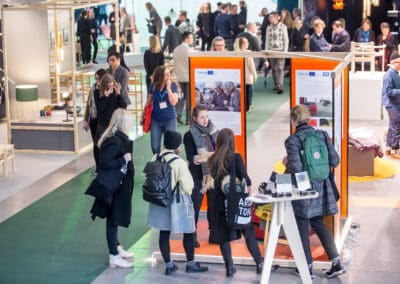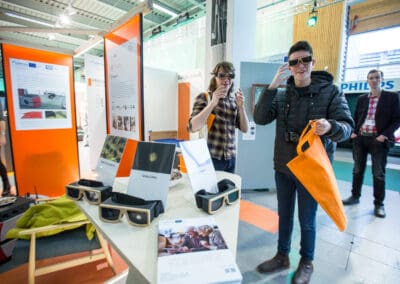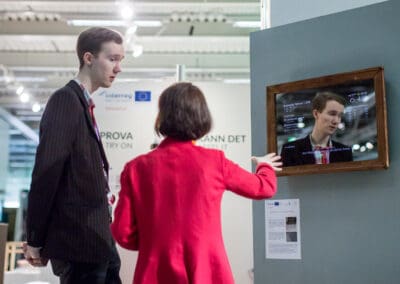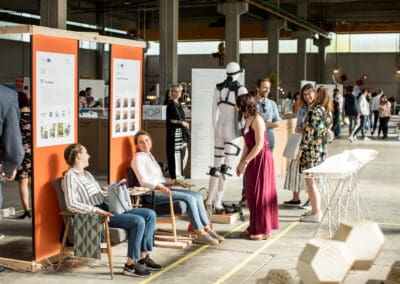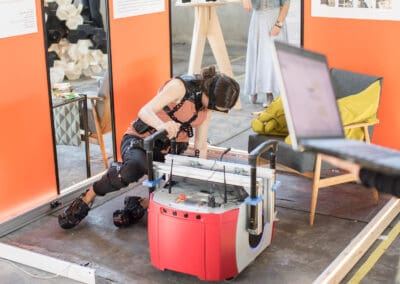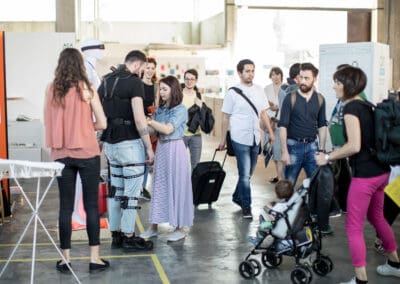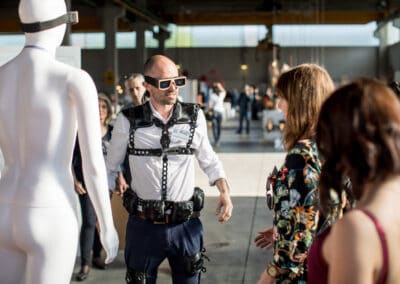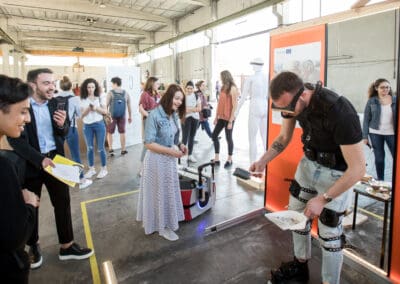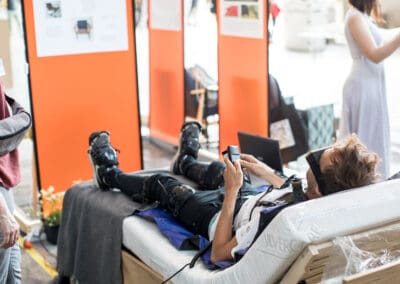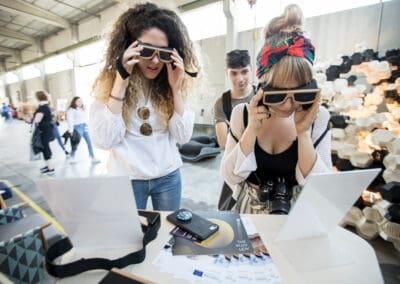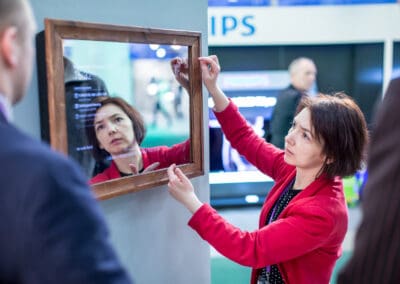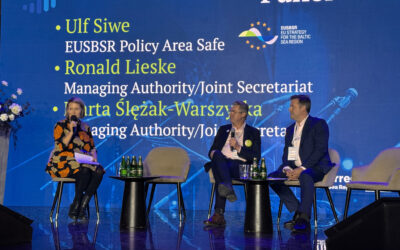Despite the progressing age of communities in the Baltic Sea region, needs of the elderly are not being sufficiently addressed by producers of furniture and home equipment. In the project BaltSe@nior co-financed by Interreg Baltic Sea Region, by developing prototypes of intelligent furniture and upgrading design trends, companies are offered thriving opportunities to develop more suitable products for the elderly. Transnational cooperation that increases the comfort of life of seniors and at the same time fosters a more competitive Europe drew the attention of EU Commissioner Corina Crețu, who recently paid a visit to the project.
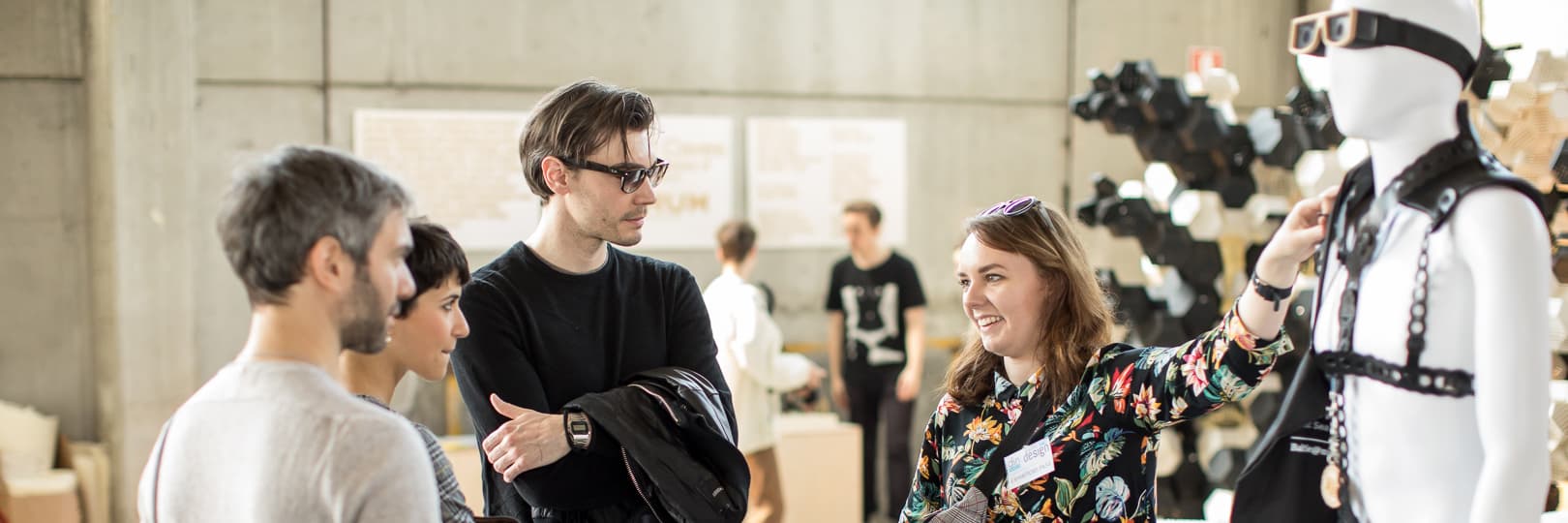
Demonstration of the age simulator by BaltSe@nior at Milan Design Week 2018 © Jakub Wittchen
Why design for seniors?
With almost 20% of the EU population being 65 years old or more, the market offering products to seniors is still underdeveloped. As a result, the elderly experience decreased comfort of life, jeopardising their independence in their home environment. In order to tackle this challenge, partners from nine countries (Denmark, Germany, Estonia, Finland, Latvia, Lithuania, Norway, Poland, Sweden) representing traditional wood and furniture industries, social sciences, robotics, engineering, and Information and communication technologies (ICT) came together in the project BaltSe@nior. By means of transnational cooperation, BaltSe@nior encourages designers and enterprises to design and manufacture tailored furniture that incorporate smart solutions to increase seniors’ comfort and security in their home environments.
Compiled data on seniors’ health and lifestyle around the Baltic Sea was the project’s starting point for developing innovative tools, such as a 3D printable age simulator imitating physical limitations related to a senior age, a mirror displaying personalised messages, baseboards allowing for detection of an elderly person’s fall and glasses imitating vision disorders. All the design methods and design tools will be available in an online library to help companies verify the particular needs of seniors in a given country, adjust their offerings and more easily enter other markets.
Care for seniors valued by the European Commission
The Commissioner for Regional Policy Corina Creţu’s interest in the project proves the need for Interreg to cope with social aspects of integration of disadvantaged groups, such as elderly people. During the field visit held on 5 June 2018 at Tallinn University of Technology, the Commissioner got acquainted with the project’s aims and achievements, including the age simulator prototype, which was presented by representatives of Poznan University of Life Sciences. The Commissioner congratulated the project on its results and transnational cooperation covering nine countries of the Baltic Sea region, expressing her great interest in supporting the issues of seniors in the EU.
“It was an enormous honour for all our BaltSe@nioR team, which gave us additional motivation to work even harder. We have a strong belief that the recognition we are gaining with our project activities significantly raises awareness and influences the attitude towards the senior population – not only among furniture companies as our target group, but reaching much further to the end users – seniors and those who take care of them, journalists, interior architects and also authorities and politicians, step-by-step transforming the EU into a better and friendlier place for seniors,” says Dr Beata Fabisiak, BaltSe@nioR project coordinator.
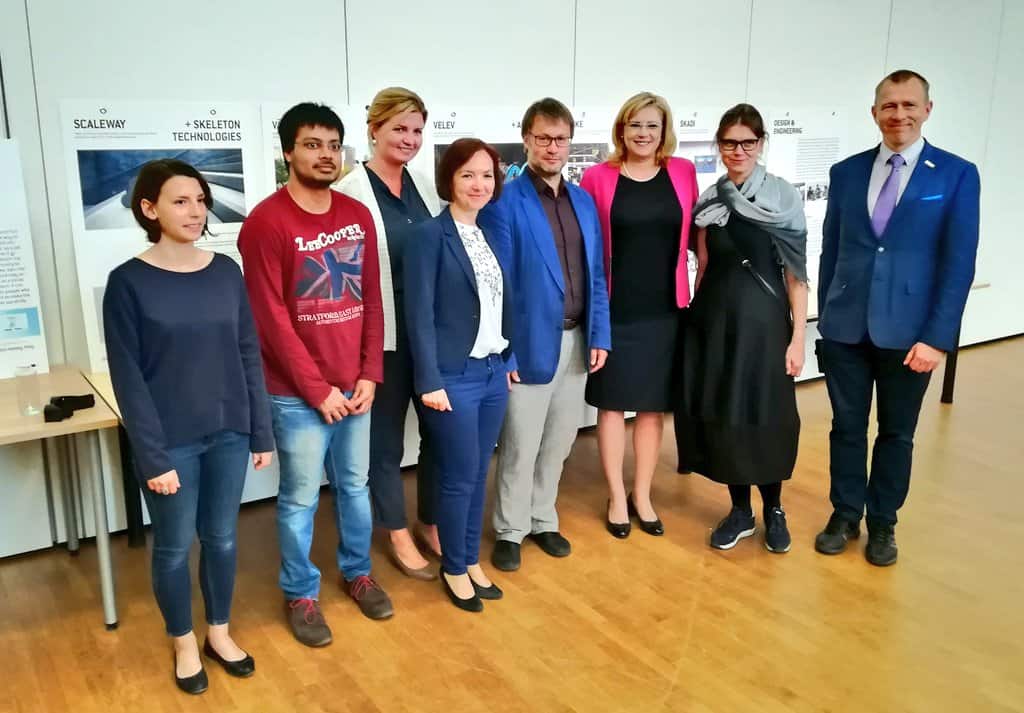
EU Commissioner Corina Cretu visits BaltSe@nior project in Tallinn on 5 June 2018 © Florin Rugina
Interest in design for seniors
Originally, the project addresses manufacturers and enterprises in the furniture industry around the Baltic Sea. However, BaltSe@nior reach goes far beyond. At the Stockholm Furniture & Light Fair 2018, the project presented its achievements, including sensor mats for designing more comfortable mattresses and redesigned armchairs from the 1960s tailored to the needs of the elderly. Soon after, BaltSe@nior successfully entered Milan Design Week 2018, the world’s biggest design event to exchange concepts with designers from Europe and beyond. The project’s tools are also attractive to other sectors beyond furniture industry, such as physiotherapy and interior design.
Baltic Sea region: a comfort zone for seniors
The project actively aspires to improve the quality of life of seniors by empowering enterprises in the furniture industry and beyond. Being part of the BSR Stars flagship of the EU Strategy for the Baltic Sea Region, it contributes to innovative character of the region. Along with creating synergies between the traditional industry and innovative ICT, it substantially increases competitiveness of companies in the Baltic Sea region, fostering European integration and cohesion.
Watch the video to see how the age simulator works:
Article by Anna Gałyga (Interreg Baltic Sea Region MA/JS) with support of Dr Beata Fabisiak (Poznan University of Life Sciences/BaltSe@nior coordinator)



